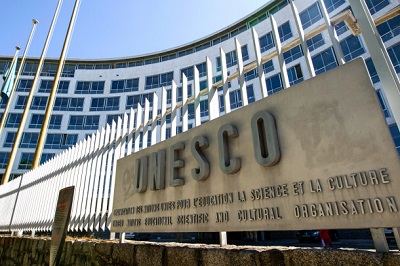Paris, (Asian independent) The Unesco’s 193 member states have approved a proposal submitted by the US to rejoin the organisation.
During an Extraordinary Session of the General Conference on Friday, 132 member states voted in favour, while Russia, North Korea, Palestine, Belarus, China, Eritrea, Indonesia, Iran, Nicaragua, Syria voted against the return of the US to the organisation, reports Xinhua news agency.
Friday’s vote came after two days of discussions.
The US had pulled out of the Unesco twice, in 1984 and 2017, causing a negative impact on the Paris-based UN body’s work.
Last month, the US sent a letter to the director-general of the organisation, proposing to rejoin as early as July based on a concrete financial plan, which includes a commitment to repay its estimated arrears of $619 million.
Following Friday’s vote, the US will now fund the equivalent of 22 per cent of the organisation’s regular budget, according to a statement from the Unesco.
Besides the progressive payment of the arrears, the US will also make voluntary contributions to fund programs including those supporting access to education in Africa and the memory of the Holocaust, the statement added.
On Friday, White House officials said the country’s membership will become official once Secretary of State Antony Blinken, or a designee, formally accepts the invitation.
In a statement, Blinken said the vote would “restore US leadership on a host of issues of importance and value to the American people”.
“I am encouraged and grateful that today the membership accepted our proposal, which will allow the US to take the next, formal steps toward fully rejoining the organisation,” he was quoted as saying.
In 2017, the administration of former President Donald Trump announced the country’s withdrawal from the Unesco, citing anti-Israel bias.
The decision took effect a year later.
The US and Israel had stopped financing the UN body after it voted to include Palestine as a member state in 2011.








